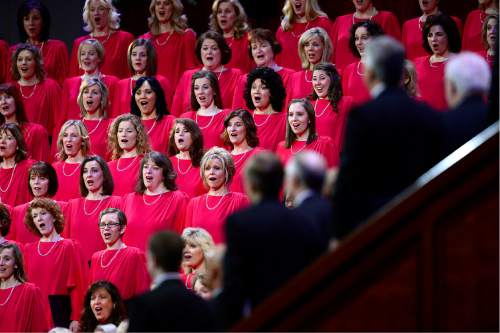This is an archived article that was published on sltrib.com in 2016, and information in the article may be outdated. It is provided only for personal research purposes and may not be reprinted.
In 1978, I went to Fort Benning, Ga., where the U.S. Army taught me how to fall out of airplanes. It was easily one of the simplest things I ever learned.
After two weeks of tough training, they crammed us into airplanes, took off, flew over the Chattahoochee River, and we jumped into Alabama. It probably took less time to fly us there than it did for us to reach the ground once we arrived.
It's the landing that requires actual thought. Once out of the airplane, you need to be able to pay a lot of attention in a short amount of time because, people, Alabama is HARD.
We did a lot of running in jump school. The guy I ran next to most mornings really struggled with the physical conditioning. He was nearly twice my age. His name was Father [I forget], and he was a Catholic chaplain.
Being a Mormon, it felt odd for me to call another guy "father" who wasn't actually that. I got used to it, though. He sometimes called me "Son" even though I was a Spec. 4 and a Mormon, and I called him "Father" even though he was a major and I didn't like officers.
Him: "We jump this morning, my son. Are you scared?"
Me: "Right out of my %#%@! mind, Father."
Since then I have had many occasions to refer to Catholic/Lutheran/Episcopalian priests as Father. It goes with the gig. For that matter, I also call Catholic nuns "Sister." It's no big deal.
Ironically, I have a harder time referring to fellow Mormons as "Brother" and "Sister" even though it's customary to the point of hard doctrine.
I don't even call my actual siblings brothers and sisters. "Brother Ron" and "Sister DeAnn" would sound fatuous at family gatherings in the same way that calling my parents "Mother Eris" and "Father Bob" would.
But most members of my LDS ward still call one another brother and sister. It sounds overly formal and even archaic to someone unaccustomed to it. You half expect them to carry it into the rest of the conversation.
"Art thou attending Sacrament meeting on the morrow, Brother Kirby?"
Sounds ominous, like the occupants of a beleaguered compound or some deep-woods fundamentalist clan.
According to what little of the gospel has sunk into me, the sibling reference is intended to remind us that we're family. That's OK, I suppose. But technically everyone is our brother or sister, even if they aren't LDS. Why don't we refer to them that way?
Probably because it would annoy some people to have total strangers say that to them.
You: "Yes, I'll have the No .7 Super Bloat burger with extra mayo, Brother DeShawn."
DeShawn: "What did you just call me? Man, I ain't your bro."
There are situations where even if you are the other person's spiritual sibling, it's a little out of place to bring it up. My personal favorite comes from when I was a small-town cop.
Weeping suspect: "Why won't you give me a blessing, Brother Kirby?"
Me: "Because, dumbass, you're under arrest for punching your wife. This is jail. You get a phone call but no blessing."
I understand the use of sibling terms in church. It invokes a sense of familial solidarity in a cause. But it also places a subconscious dividing line between us and whoever we consider not to be "brother" and "sister" material.
Then again, maybe these sibling references are actually a form of indictment. Given the way most real family members behave toward each other, calling each other "Brother" and "Sister" makes sense.
Robert Kirby can be reached at rkirby@sltrib.com or facebook.com/stillnotpatbagley.



